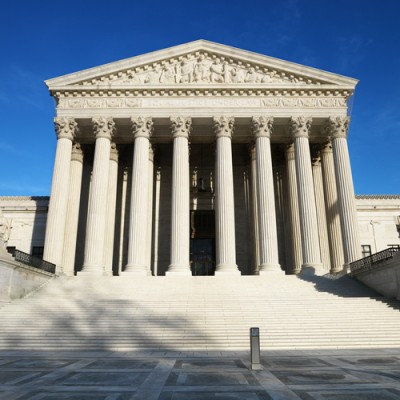Supreme Court allows more extended-family exemptions to travel ban

Updated: The U.S. Supreme Court on Wednesday refused to disturb part of a federal judge's decision that exempted grandparents and grandchildren from President Donald Trump’s revised travel ban.
The order (PDF) did not disturb U.S. District Judge Derrick Watson’s ruling that the travel ban can’t be used to exclude “grandparents, grandchildren, brothers-in-law, sisters-in-law, aunts, uncles, nieces, nephews, and cousins of persons in the United States.”
The Supreme Court did, however, block a portion of Watson’s decision that exempted from the travel ban refugees who have formal help from a resettlement agency. That portion of Watson’s decision is stayed pending an appeal to the San Francisco-based 9th U.S. Circuit Court of Appeals.
Three justices would have stayed Watson’s order in full. They were Justices Clarence Thomas, Samuel Anthony Alito Jr. and Neil M. Gorsuch.
Trump’s revised ban bars new visas for travelers to the United States from six Muslim-majority countries for 90 days and imposes a 120-day ban on refugees.
Watson’s ruling addressed guidelines adopted by the Trump administration after the U.S. Supreme Court ruled June 26 that the travel ban could be enforced—except for immigrants with who have a bona fide “close familial relationship” with someone in the United States.
The administration’s guidelines said immigrants are exempt from the ban if they have a close family member in the United States, defined as a parent (including an in-law), spouse, child (including an adult child), son- or daughter-in law, and sibling (including a stepsibling or half-sibling), and fiancé or fiancée.
Watson had found the administration guidelines were “unduly restrictive.”
Updated at 6:38 p.m. on Sept. 1 to correct spelling of Gorsuch’s first name in fourth paragraph.



